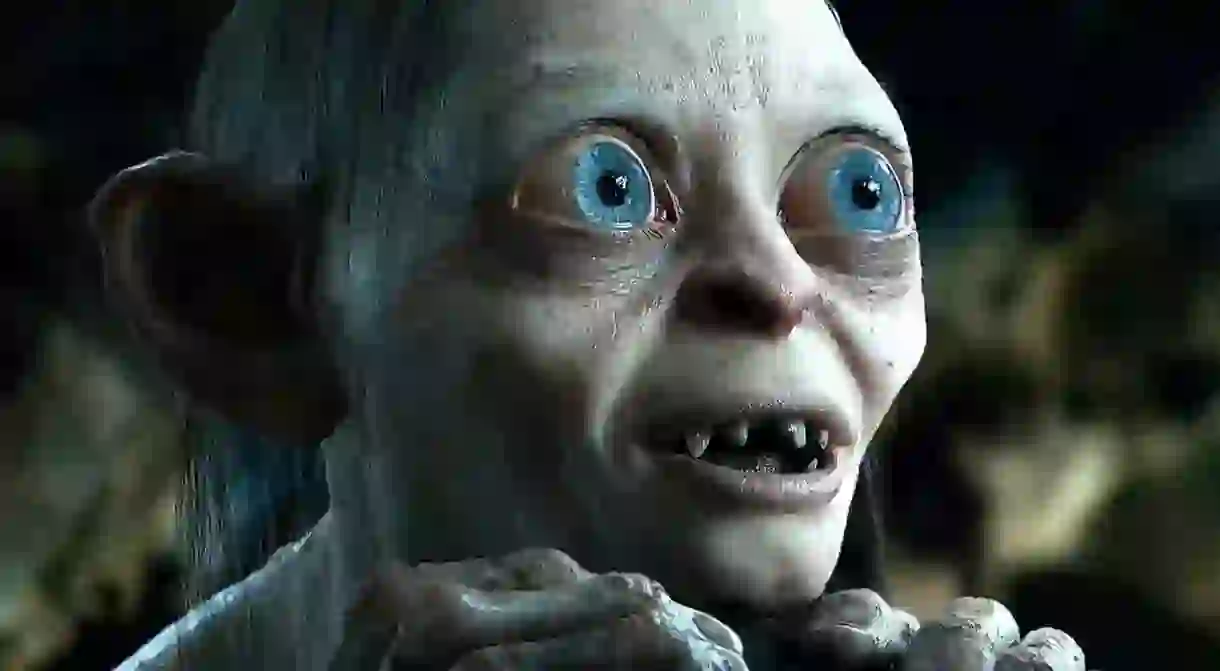A 'Lord of the Rings' Streaming Series Could Prove the Ultimate Insult to J.R.R. Tolkien

Tolkien purists are horrified at the thought of a sexed-up Middle-earth intended for Game of Thrones fans.
Warner Bros. Television and the J.R.R. Tolkien Estate are in talks with Amazon Studios and possibly Netflix to develop a streaming series based on Tolkien’s The Lord of the Rings. HBO has apparently dropped out of the bidding, given that securing the rights will cost between $200–250 million and the production budget will be astronomical.
Dilute and vulgarize
On top of the recently settled five-year lawsuit that pitted the Tolkien Estate and publisher HarperCollins against Warner Bros., its subsidiary, New Line, and the Saul Zaentz Co. (which holds the screen rights to Tolkien’s Hobbit characters), it’s not clear how actively involved the estate is in these negotiations.
Christopher Tolkien, the author’s 92-year-old third son and his sole literary executor, was vehemently opposed to Peter Jackson’s The Lord of the Rings films (2001–2003). He was for several years estranged from Simon Tolkien, his barrister son from his first marriage, who had offered to cooperate with the the filmmakers. It seems unlikely that Christopher Tolkien would endorse a small-screen series certain to dilute and vulgarize his father’s epic saga.

Variety broke the news on Friday that Amazon was in talks with Warner Bros. and the Tolkien Estate. The Tolkien fans who responded earliest to the report were mostly unenthusiastic and fearful. And if Game of Thrones is going to be the benchmark for high fantasy against which this new Lord of the Rings series will be set, Tolkien-ites have good reason to be worried.
Myth under threat
An injection of Game of Thrones-style sex and graphic violence into the comparatively chaste universe of Tolkien’s Middle-earth would harm its reputation irreparably and, in effect, destroy the myth that the author sought to create when he wrote the triptych between 1937 and 1949.

It’s hard to imagine the linguistic and religious elements Tolkien embedded in his text surviving a Lord of the Rings series, especially with makers looking to attract the Game of Thrones audience. The show’s eventual producers will almost certainly be more interested in depicting the sex lives of Hobbits, Dwarves, Elves, and Dúnedain alike than honoring Tolkien’s Anglo-Norse mythology.
Celibate vision
That the people of Middle-earth mate is understood; showing them mating would not so much be a lapse in taste as a desecration of Tolkien’s celibate vision. He fully recognized Robert Louis Stevenson’s dictum that “Life is monstrous, infinite, illogical, abrupt and poignant; a work of art, in comparison, is neat, finite, self-contained, rational, flowing and emasculate.”

The damage that a streaming series might do to The Lord of the Rings is clear from Jackson and his collaborators’ betrayal of The Hobbit in their three films (2012–2014) based on Tolkien’s 1937 children’s novel, which is the prequel to The Lord of the Rings.
Though Christopher Tolkien disparaged Jackson’s The Lord of the Rings, it was a magnificent endeavour—tonally, if not always narratively, true to the atmosphere of the books.
Cynical enterprise
In contrast, The Hobbit films cynically extended the book’s simple story with protracted sequences—for example, Bilbo Baggins and his Dwarf companions’ adventure in the Mines of Moria—that help facilitate Warner Bros.’ licensing of online games and slot machine franchises. The coupling of the Dwarf Kili and Tauriel, a girl-power-owning Elf invented for The Hobbit films to attract young female viewers, also offended purists, though, in fairness, it was handled discreetly by Jackson.

Introducing diversity
Some fans are concerned that casting non-white actors would impair Tolkien’s vision of Middle-earth. This is a contentious issue. Above and beyond the fact that the makers of the series will want it to appeal to a multi-ethnic audience, color-blind casting is to be applauded.
However, casting an African-American, Hispanic, or Asian actor to play, say, one of the Fellowship of the Ring—four Hobbits, two Men, a Wizard, a Dwarf, an Elf, all white—would be patronizing and probably incongruous in Tolkien’s ethnically restricted milieu. That the Harfoots, the dominant tribe of Hobbits, have darker skin than the Stoors and Fallohides might take on special significance for the series’ casting directors.

Ethnic characteristics in Tolkien are a thorny issue to begin with. The so-called Easterlings allied to the evil Sauron are “sallow” or “swarthy.” Some of the Orcs, who comprise the bulk of Sauron’s army, were noted as looking like “Mongol-types.” At the Battle of the Pelennor Fields, they were joined by Haradrim—“black men like half-trolls with white eyes and red tongues.” There have been online debates about whether Tolkien is racist, and it has to be said that the Nordic-Celtic world he created is not the most egalitarian.
Will the makers of The Lord of the Ring attempt to appeal to the widest possible demographic in the name or progressivism, or will they avoid alienating Tolkien purists? It seems obvious which way they’ll go.













